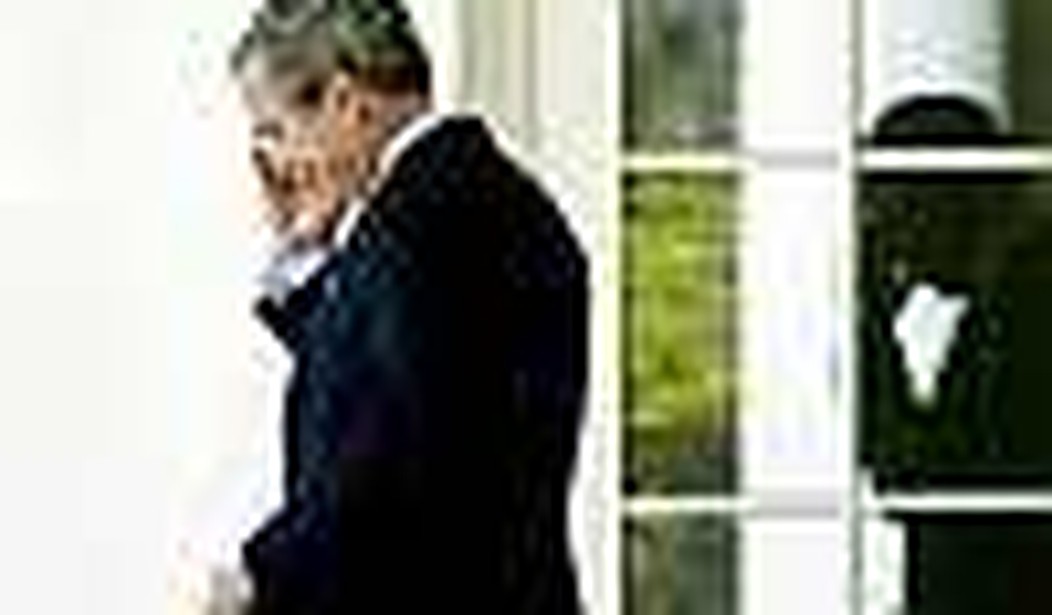At another time, in another age, George Bush might have thrived and been considered a success. It is a shame — and may ultimately prove to be disastrous — that he ended up being president during the last eight years.
In truth, the world has changed dramatically during the Bush imperium, and it is impossible to say today whether the president’s policies acted as a catalyst that hastened and magnified these changes or whether there were other, more subtle forces at work that would have brought about the upheavals we have seen regardless of who sat in the Big Chair. It is something historians must decide after time has had its way with all of us and we have long since “shuff’d off this mortal coil” and touched the face of eternity.
History certainly has a way of taking some participants by the scruff of the neck and tossing them about willy-nilly, flinging them challenges for which they are neither prepared nor capable of managing. George Bush may have made a nice president in the 1950s. Or perhaps the 1880s, when the Gilded Age was in full bloom and self indulgence was a national religion.
Not lacking in brains and possessing a confidence that bordered on arrogance, President Bush would probably have thrived in less interesting times. But the challenges that emerged beginning with the attacks on September 11, 2001, right on through today’s financial meltdown of which we still haven’t glimpsed bottom, showed a man out of his depth, lacking in judgement, unable to come to grips with the forces that were reshaping the world and America. He is not without gifts. But when a president is proved wrong by events as often and as consistently as Bush, there is little alternative but to conclude that he was the wrong man at the wrong time for America.
It can’t entirely be the fault of the press. It can’t all be the fault of the Democrats. At some point, the leadership of the president himself must be examined for clues as to why the United States is in the position we are today — a nearly broken military; a dicey and still reversible situation in Iraq; losing in Afghanistan; the enemies of freedom on the march in Europe, Latin America, the Middle East, East Asia, and points in between. The world is worse off and Americans are worse off because George Bush was president.
Some Bush supporters, while agreeing that things have not been exactly peachy these last eight years, nevertheless try and compare Bush to Lincoln — at least as it relates to the idea that both men faced serious challenges and remained steadfast to their beliefs in the face of virulent opposition. (My PJM colleague, the lovely Kyle-Ann Shiver, makes that point in her piece opposite this one.)
This is an emotionally appealing allegory and, on the surface, offers some compelling comparisons. The Emancipator had to deal with an active conspiracy to overthrow the lawful government and set up another nation. George Bush was faced with defending the American people from a murderous, implacable enemy hell-bent on our destruction. Both men chose force of arms to defeat the forces arrayed against them. Both men suffered numerous setbacks in the pursuit of their goals. Both endured the worst kind of personal invective hurled against them by their political foes.
But does Bush have any of Lincoln’s crying need for self-examination — a wrenching introspection where Father Abraham could recognize his failures and change course not once, but several times? Lincoln agonized over emancipation despite the fact he entered office never dreaming he would take that position. It went against his own inclinations and he did it in opposition to most in his cabinet, many of his supporters, and the army.
Bush gets credit for changing strategy in Iraq. But a good argument can be made that this change came three years too late and long after many experienced hands in and out of the military were telling him to dramatically increase troop strength. The difference between the two is that Lincoln knew when steadfastness was necessary and when hanging on to a policy was simple stubbornness. For Bush’s part, even in the face of total chaos, sectarian bloodletting on a large scale, and daily acts of horrific terror and violence in Iraq that only got worse and worse over the months, he would not alter strategy. The inability to admit error that gripped President Bush and prevented him from exercising sound judgement that would have allowed a change in tactics almost cost the United States the war. As it is, the issue is still in doubt despite encouraging improvements.
There are other fallacies with the Lincoln-Bush comparison. For example, I think that if one were to weigh the challenges faced by both men, Lincoln’s problems and burdens were much the heavier given the extraordinary carnage and destruction of the war. President #16 also had the issue of slavery to resolve — perhaps the most intractable problem our nation has ever imposed upon itself and more tangled and complex than anything with which President #43 had to face.
Lincoln was also dealing with not only a virulent political opposition but one that included many who were disloyal as well. It may be popular in some conservative quarters to accuse Democrats of being unpatriotic for opposing the war but even those who used Iraq for purely political calculation did not wish us to devolve into two nations.
But perhaps the biggest and most telling difference between the two presidents was Lincoln’s expansive and inquisitive mind compared to what some who have seen President Bush in action close up refer to as an incuriousness about his presidency. It may seem a little pathetic from this distance, but at the beginning of the war Lincoln immersed himself in textbooks on military strategy, believing he could cram a lifetime’s worth of experience into his head in a matter of months. By many accounts that we have of President Bush, he rarely asked questions during or after briefings, rarely asked for follow up information, and affected a disinterest in details.
Ronald Reagan had a successful first term affecting this management style. But Reagan, too, had a curiosity about government and policy — at least those policy areas that interested him. Reagan also had a triumvirate of aides who were effective managers themselves and were able to make Reagan’s unorthodox style of leadership work. His second term was less successful when lesser men served him.
This doesn’t mean that Bush was dumb. A poor communicator, yes. An indifferent administrator, certainly. It simply means that Abraham Lincoln was interested in what Erasmus called “the study of wisdom.” And that is something that even President Bush’s most rabid supporters cannot say their man achieved over the last eight years.









Join the conversation as a VIP Member